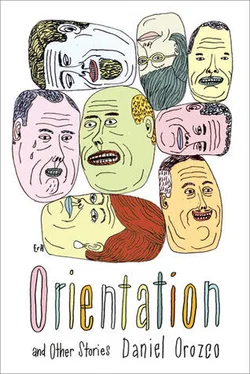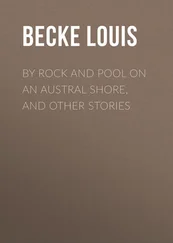To the President of N______
Piss up a rope, you bastard
Lee Marvin
When his presidency was toppled and he was run out in 1979, he was the majority stockholder of the national air and rail lines. He owned the beef ranches and the meat-processing plants, the timber tracts and the lumber mills. Coffee, cotton, bananas, sugar, tobacco, rice — from field to factory to export, it all belonged to him. Near the end, President Carter had asked him to give some of it back, to return something of his plunder— any thing — as a concession to history: “As a personal favor to me, Tacho.” He called the president of the United States a bastard and told him to piss up a rope. His wife was an American citizen living in Miami Beach. When he joined her there and the Carter administration asked him to leave, she stayed. She was the daughter of diplomats, a graduate of Barnard and Columbia, and had always hated his nickname. Tacho! She thought it lowborn and tawdry — a gangster’s moniker. She alone among his intimates addressed him by his Christian name. Soon after their marriage she never addressed him by name at all. Within five years they lived in separate houses; within fifteen, separate countries. Yet they had five children together, who all called him papi . And although he was an absent father, they seemed genuinely fond of him. They were born and schooled in the United States; he joked once that he wanted them to amount to something, that the run of dictators in the family had to end. To hear an utterance such as this, wry and self-effacing, come out of a man like him was an extraordinary and unsettling event, a paradox — like a blossom from a cinder block — whose occurrence only affirmed its own impossibility. For the truth was this: he was a resolutely dull man. When he walked into a room, there was no effect. He looked like a barber or a haberdasher, and so it was standard procedure to announce his entrances to generate the appropriate hubbub and attention. He boasted that he was a hard-ass, a control freak, a micromanager obsessed with the details. He said he wanted to know every thing. But when you’d tell him, he’d get bored. At cabinet meetings and security briefings he would gaze out the window at the squirrels in the trees, or release gaping yawns without covering his mouth, or intently go through his coat pockets looking for something. Then, out of sheer impatience, he would cut the meeting short and hastily okay whatever was being discussed — diplomatic policy, military ops, orders of arrest and interrogation. Yet he could spend hours shopping for socks. He could fritter away an afternoon picking out the perfect wallet. He had health concerns. A heart attack at age forty-two scared the bejesus out of him. He was told to drop seventy pounds. He did, and he kept it off. But he bickered constantly with his doctors, fussing over his meds and his course of treatment. He obeyed them, of course. He was too scared not to. He had digestive problems — chronic intestinal gas and acid reflux — which he frequently mistook for an incipient heart attack. He brooded. He was always vaguely preoccupied or in a sulk about something. His children called him Sourpuss, Grumpy Gus, Señor Mopey-Pants. When he was booted from the United States, his mistress of twelve years, a former rental car agent and part-time model named Dinorah Sampson, joined him in the Bahamas. When denied sanctuary there, they were taken in by Paraguay. Dinorah had numerous names for him that ran the gamut of moods: Big Bear, Big Bull, cabrón pínche, cabrón Cocksucker, Lying Cocksucker Dog, My Prince, My Light, My One True Love. And swaying above him in bed, rotating gently against his decorous thrusts — for the heart attack had made him an overcautious lover — she called him bestia. “Mi bestia amor,” she would whisper, leaning down, the warmth of her breath in his ear and the rasp of her cheek on his in the thick hush of the villa around them. Bestia amor, mi corazón feroz. My beast, my beloved. My savage, my heart.
* * *
The Presidente-in-Exile is watching his mistress swim.
He reclines in a chaise by the pool. He wears slippers and white linen slacks and a cream guayabera. His legs are crossed at the ankles, slim and pale as a girl’s. Inside the slippers — Bergamo-silk-lined morocco loafers — his feet are bare, powdered and smooth, the heels exfoliated, the nails squared and buffed. He sips a Walker Blue Label on the rocks and pretends to read prospectuses, a batch of them in his lap. Bettinger insists on this, Bettinger always with a hard-on for the windfall scheme, the in-and-out deal, the killing: “They all want you, Tacho.” And they do. They all want his participation. Every cover letter says so: “We would be so pleased with your participation”; “Your participation is anxiously anticipated.” He is in fact meeting tomorrow morning with people who want him, an investors group at the Banco Alemán.
The Presidente-in-Exile yawns. It is near dusk, too dark to read anything. But he pretends, thumbing through a folder while, from the corner of his eye, he watches his mistress swim. She has packed on the pounds since their arrival in Asunción. He has told her: “Where is the woman I fell in love with? Where did this cow come from?” Sometimes he moos at her. It embarrasses him to watch her cross a room, galumphing and tottering to find her center of gravity in stiletto heels. But in the water she is supple and dolphin-sleek and powerful. She laps the pool again and again, in long, languid strokes that slice effortlessly through blue-black water. He marvels at her. He sips his whiskey. Ice cubes shift and clink in his glass. It is humid, late winter in Paraguay — the damp, immersive heat of the barber’s towel, of evenings in jungle encampments and in the kitchens of childhood. On the edge of his vision, lightning bugs shimmer and weave in the twilight. He can hear the distant music and tinny laughter of a TV somewhere, the clatter of parrots in the trees, the puling of a ship’s whistle on the river.
From out of the shadows, a guard steps in, salutes, approaches. And just like that, a spell is broken. He sends a message, a reminder about his engagement tonight. “Yeah, yeah,” the señor snaps. “Go tell Gallardo.” The guard salutes again, retreats.
The Presidente-in-Exile drains his whiskey. He must shower and shave and dress for dinner. But he pauses. In the cañón behind him, beyond the wrought-iron fence, he can hear the dogs scrabbling through thick brush. (Rottweilers, he’s been told. Attack dogs trained not to bark.) Far above, the roar of an airliner approaches, crescendos, recedes. All around, the sudden thrum of bush crickets revving up like evening’s engines. And the bug zappers, cerulean maws afloat in the enfolding dark, and the sputter and snap of their every tiny kill. And the slap of water and the delicious insuck of Dinorah’s breath at the near turn, where the Presidente-in-Exile sits, his slender ankles crossed, shaking up the ice in his empty glass and secretly watching his mistress swim.
* * *
The Presidente-in-Exile is telling a dirty joke.
Two whores come to the handsome young priest for absolution. The priest invites them both into his tiny confessional. Sins are detailed, passions are stirred, and contortions ensue, followed by the sudden appearance of a guileless and comely young nun, and then the village idiot, who is hung like a bull. The Presidente-in-Exile is mucking up the joke, but his audience is a forgiving one: Aurelio and Méme on leave from the counterinsurgency back home; Lucho, in from Rio; and Luís and Humberto and Papa Chepe from Miami — some of the old comandantes down for a visit, in a private dining room at Bolsi, the toniest of Asunción’s downtown restaurants.
Читать дальше












